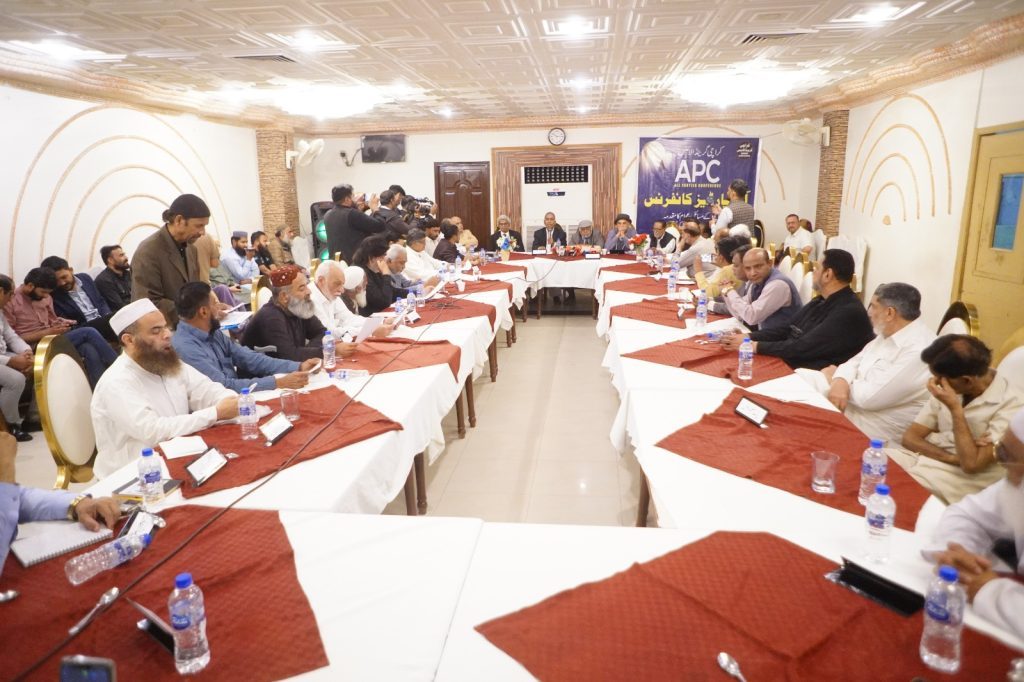
The recent All-Parties Conference (APC) held at Peshawar’s Governor House underscored a grim reality: the escalating crisis of law and order in Khyber Pakhtunkhwa is tearing through the region’s social fabric. In a rare display of unanimity, the province’s political leadership issued a joint statement voicing alarm at the deteriorating security situation. The statistics are haunting: this year has witnessed more bloodshed than the last, with over 70 security personnel martyred in a single month and more than 200 lives lost in the sectarian violence that has engulfed Kurram District.
While the country grapples with a litany of challenges, Khyber Pakhtunkhwa appears to be slipping through the cracks. Both the provincial and federal governments seem ill-equipped to address the crisis. The APC extended an invitation to the ruling party in the province, Pakistan Tehreek-e-Insaf (PTI), but its representatives declined, asserting that convening such a meeting is the prerogative of the provincial government, not the governor. This decision reflects a missed opportunity for meaningful dialogue. If the provincial government failed to take initiative, was it not prudent for the ruling party to participate in an effort to restore stability?
The blame game does little to console a grieving populace or to tackle the stark reality of a region reeling under the weight of terrorism and sectarian strife. The APC rightly pointed to the dual responsibility of federal and provincial governments to tackle this quagmire. However, the onus squarely falls on the provincial government to demonstrate leadership. Instead, it seems to have misplaced its priorities.
Chief Minister Ali Amin Gandapur, rather than addressing the blood-soaked streets of Kurram or the waves of terror striking the province, chose to marshal provincial resources for a march on Islamabad. His singular focus appeared to be the release of his party leader, Imran Khan, using tactics more reminiscent of a personal crusade than the responsibilities of public office. Surely, the pursuit of justice for a political figure must pass through the courts, not through a show of force.
Threats of renewed protests are once again emerging from the provincial corridors of power. It is imperative that PTI shifts its strategy, turning to the provincial assembly as the proper platform to advocate for its demands. Meanwhile, its federal leadership must raise concerns in the National Assembly and Senate. As for securing the release of their party leader, the courts remain the only legitimate avenue.
The pressing need of the hour is to focus on restoring peace and stability in Khyber Pakhtunkhwa. This demands a collective, bipartisan approach that transcends political rivalries. The provincial government must engage opposition parties, the governor, and the federal leadership in a united front against terrorism and sectarian violence. Failing to do so would not just be a betrayal of the public mandate but a deepening of the wounds that threaten to undo the very fabric of the province.
At this critical juncture, the people of Khyber Pakhtunkhwa deserve governance that prioritizes their safety over political theatrics. A fractured leadership cannot hope to heal a fractured province. It is time for action, collaboration, and an unequivocal commitment to peace.



